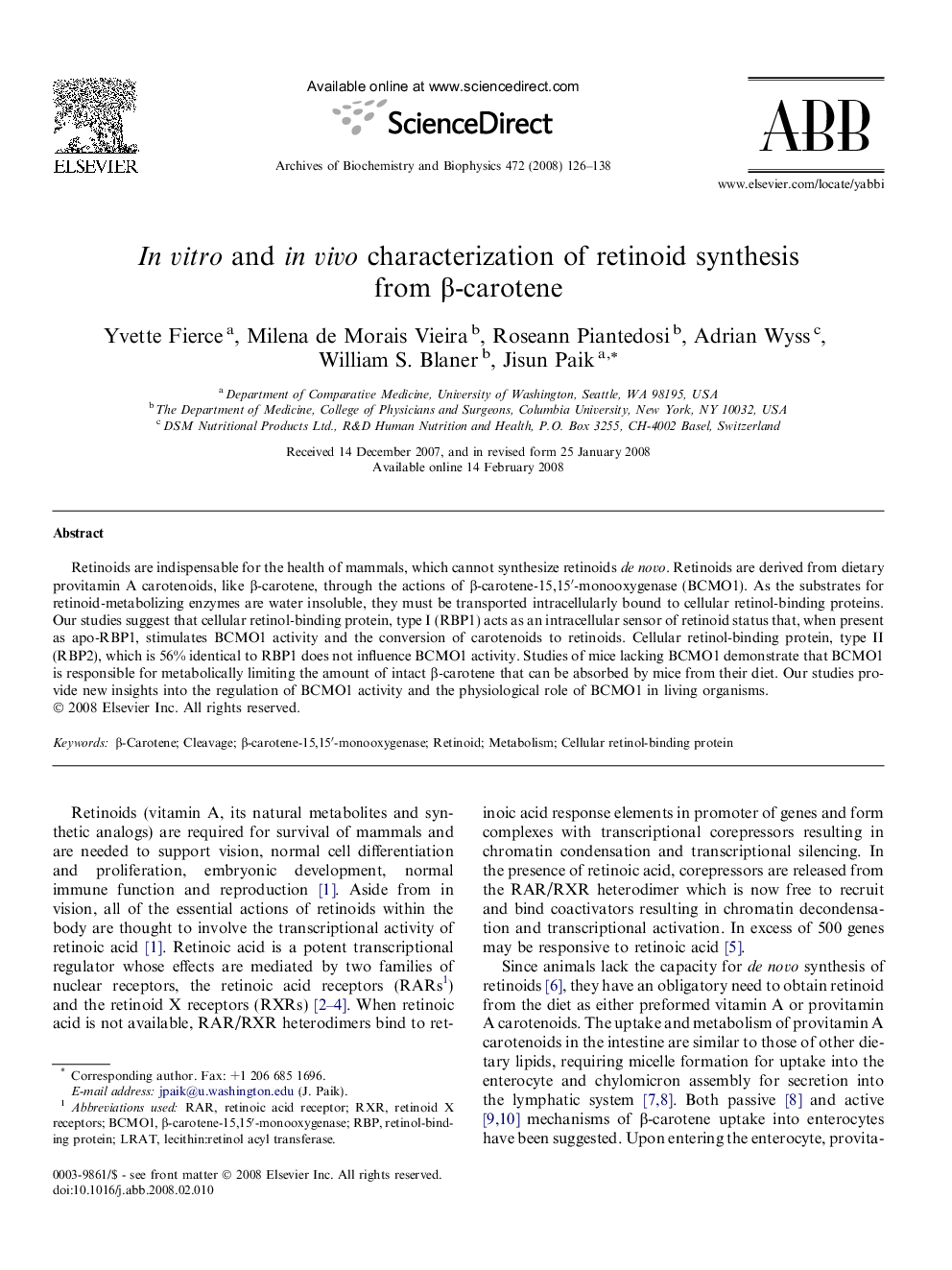| Article ID | Journal | Published Year | Pages | File Type |
|---|---|---|---|---|
| 1926803 | Archives of Biochemistry and Biophysics | 2008 | 13 Pages |
Abstract
Retinoids are indispensable for the health of mammals, which cannot synthesize retinoids de novo. Retinoids are derived from dietary provitamin A carotenoids, like β-carotene, through the actions of β-carotene-15,15â²-monooxygenase (BCMO1). As the substrates for retinoid-metabolizing enzymes are water insoluble, they must be transported intracellularly bound to cellular retinol-binding proteins. Our studies suggest that cellular retinol-binding protein, type I (RBP1) acts as an intracellular sensor of retinoid status that, when present as apo-RBP1, stimulates BCMO1 activity and the conversion of carotenoids to retinoids. Cellular retinol-binding protein, type II (RBP2), which is 56% identical to RBP1 does not influence BCMO1 activity. Studies of mice lacking BCMO1 demonstrate that BCMO1 is responsible for metabolically limiting the amount of intact β-carotene that can be absorbed by mice from their diet. Our studies provide new insights into the regulation of BCMO1 activity and the physiological role of BCMO1 in living organisms.
Related Topics
Life Sciences
Biochemistry, Genetics and Molecular Biology
Biochemistry
Authors
Yvette Fierce, Milena de Morais Vieira, Roseann Piantedosi, Adrian Wyss, William S. Blaner, Jisun Paik,
